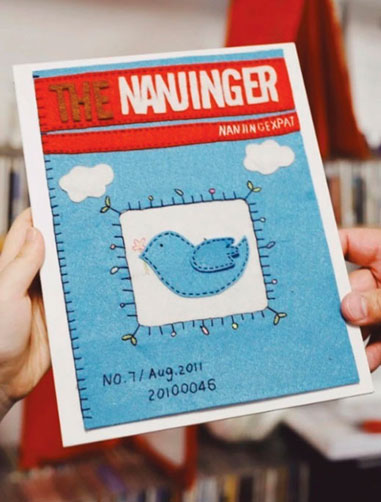If you are reading this, you either live in China, are passing through or have an active interest in reading about life here. So it is undoubtable that you have at some point at least brushed on the notion of face.
As one of those multi-faceted cultural, personal, national and even international cultural identities, an all-encompassing definition is difficult to pin down.
The concept is well defined by Huang Shuanfan, in the study “Two Studies of Prototype Semantics: Xiao ‘Filial Piety’ and Mei Mianzi ‘Loss of Face’” (1987); “Face is a sense of worth that comes from knowing one’s status and reflecting concern with the congruency between one’s performance or appearance and one’s real worth”.
Celebrated Chinese author, Lin Yu-Tang goes on to say in his 1935 book, My Country My People, “Interesting as the Chinese physiological face is, the psychological face makes a still more fascinating study. It is not a face that can be washed or shaved, but a face that can be ‘granted’ and ‘lost’ and ‘fought for’ and ‘presented as a gift’. Here we arrive at the most curious point of Chinese social psychology. Abstract and intangible, it is yet the most delicate standard by which Chinese social intercourse is regulated”.
Although Mianzi (face) can be understood in a vast array of other languages and cultures, it seems Asian society, and China in particular, hold it in the highest esteem. “Westerners can easily misinterpret the idea of face as Chinese people simply being too sensitive or thin skinned. But in reality, face is a complicated part of good manners in China. Failure to understand face may result in awkward situations and burned bridges. If you can change your focus from winning to preserving harmony, it is much easier to get along in China,” commented Jason McBride of Yo-Yo Chinese, an online Chinese language education company.
As a collective society, loss of face naturally not only greatly affects the individual but also one’s neighbours, city and even the entire nation. Chinese athletes, for example, have in the past publicly apologised to the country’s people for losing a game or competition, as this caused damage to the team’s sense of face to the nation. Diplomats serving abroad have returned home to intense scrutiny for failures in negotiations and national damages of face. More recently, Chinese tourists caught misbehaving abroad are named and shamed back on the mainland for seriously denting the nation’s sense of face.
The beginning of the Opium war marked the start of a long period of deep shame in China’s history; unequal treaties, war, addiction and domination affected the Chinese people on a national scale so deeply that it was thus coined the “Century of Humiliation”. So how can such a profoundly unwavering method of interaction ever flow smoothly in a world of cross-cultural business management?
Thus far China and the west have managed to conduct millions of business deals that were unfathomable just 40 years ago. In the majority of cases, a great deal of the negotiating on the western side was handled only after determined efforts to learn the ways of guanxi (connections) and mianzi (face).
People who were raised during the Cultural Revolution relied heavily on an extremely entangled web of connections and the giving of face in order to get anything done. The simplest of tasks, such as buying a train ticket, required a connection of sorts. As vastly different things have now become in China, changes in how people conduct themselves privately and professionally are inevitably evolving as well.
In Chinese society, hierarchy is strongly in place and shall not be challenged. Only that of a friendship is considered equal. All the rest; the ruler and ruled, husband and wife, parents and children, senior and younger; all obey a strict order of hierarchy. So when we look at the Chinese business model, it is no wonder that modern companies within China follow the same system. Top down communication and a strong emphasis on teamwork, leadership amongst management and unity amongst workers. However, we are now beginning to see some cracks emerging.
Millennials in China are growing a steady reputation for jumping ship and company, hopping well before their first year contract has even ended. Why? The main reason; job dissatisfaction. Day in and day out (millennials mainly), can be heard whimpering in the hallways of offices that their boss makes them work 12-hour days for no extra pay, or that they face 7-day-work weeks with no recognition for hard labour put in. As Sean Upton-McLaughlin from China Culture Corner puts it, “Many Chinese leaders and managers expect respect from their subordinates and in many cases expect to be obeyed without question, no matter the rationality or fairness behind a request. Not obeying ‘the will’ of a Chinese leader or manager does not give them the perceived necessary prestige they (and others) feel is deserved. Indeed, survival in a Chinese company depends on knowing one’s place, and face plays a very important role in facilitating that function”.
So what of these youngsters then? Just how are they changing the face of business culture in China? “Many young urbanites in their twenties and thirties have been exposed to Western business practices by attending MBA programs or working in foreign companies….They tend to be more savvy and determined than their elders, more inclined to speak directly, and less likely to be concerned about losing or saving face… The rising importance of sound business principles and credentials makes it easier to accomplish things without relying exclusively on guanxi connections in contemporary China”, responds Susanne Fox for USCHINA Business Review.
Acclimitisation to western education, businesses and culture is drilling holes through the strict structure of the Chinese pyramid. Exposure to the bottom up management styles of western countries, equality in the workplace, education abroad, movies and money are all combining factors proving strong enough to fracture delicate silk webs that have been spinning for centuries.
For the time being, China’s business culture seemingly operates quite well within its own borders and abroad. It may be, for the very reasons discussed in this article, that China appears to be closing a few windows on the outside world again. “Preferential treatment towards foreign firms goes back to 1994… [however] once considered Beijing’s most-welcomed guests, bringing with them the money, management skills, and technical knowledge that the country so badly needed, foreign companies now appear to have fallen out of favour,” Jane Li of the South China Morning Post reported.
Change is the only constant in this land where we live. While the youth of China are beginning to voice dissatisfaction, maintaining face and respect for the system still remains as fundamental as ever to this ancient society.











